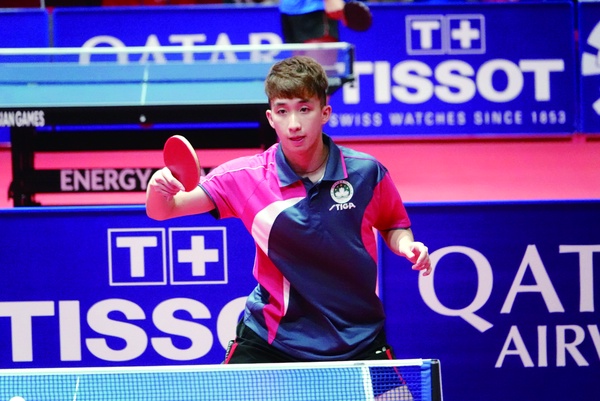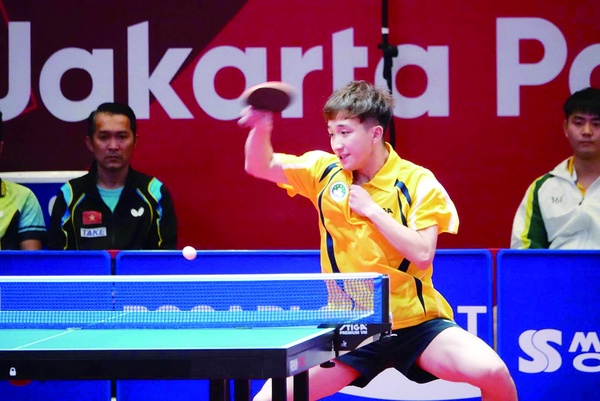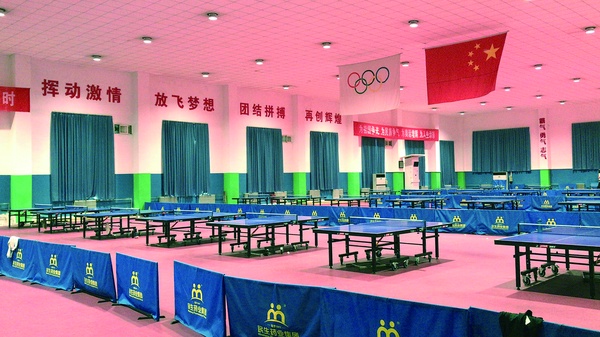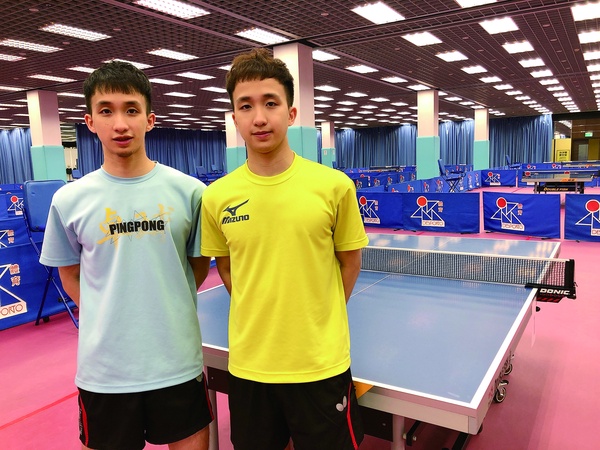Together, brothers forge sporting career
Macao's Sports Bureau has always maintained an open attitude towards athletes that have not fully met requirements to apply for the Training Subsidy Program for Elite Athletes. Since 2018, special training programs have been developed with sports associations, to provide training allowances for these as of yet unqualified athletes, in order to fully support them and their related personnel in competition outside Macao. In 2019, the Sports Bureau approved the application for one such special training plan for table tennis players Cheong Chi Chon and Cheong Chi Cheng. With their three year support plan, they have set their sights on the 2022 Hangzhou Asian Games.
Fighting for a dream
Brothers Cheong Chi Chon and Cheong Chi Cheng have been playing table tennis since they were young boys. They joined their school team at the age of 11, were subsequently selected to join Macao's Youth Table Tennis Academy, and from age 13 were part of the Macao youth training team before officially turning professional at 20. The brothers encouraged and supported each other to overcome difficulties through it all. With the support of family and friends, the two brothers decided to temporarily lay down their studies and chase their dreams as full-time athletes.
Under the support of the Sports Bureau's "Special Funding Program, the Cheong brothers went to Henan province last September to train with the provincial table tennis team. They made rapid progress once training professionally, and even found that they now experience their sport differently. "In the past, table tennis was played for interest. We practiced in our spare time, and our schedule and training content were more casual. Now that it's our profession, there's a sense of responsibility, and we stick to our plan even if we're tired. We aim higher with more intense training than in the past, because we chose this road, and we now hope to break through our own limits and see how far we can go."
Imagination and reality
The four months of training with the Henan provincial table tennis team left a deep impression on the brothers. It took them nearly the full four months to adapt to the high-intensity training. According to Chi Chon, the elder of the two, full-time training is more difficult than he imagined. "Before we arrived, I thought the provincial team training would be similar to that of Macao, just with more volume and more time commitment, but once we got here I realised the two were totally different. The intensity and frequency of provincial team training, as well as the requirements for morale and physical strength are higher than before. It takes up all your energy. Living a regulated life of sleeping, training, competing, eating and resting every day might sound boring, but in fact every day holds different challenges, all aimed at improving your physical fitness, mental health and techniques. A routine of regular work and rest time also help you stay in your best shape."
For younger brother Chi Cheng, commencing full time training broke the illusions he had held in the past. "I used to think that once I became a full-time athlete, I would definitely see an increase in strength. In the process of full-time training, though, I found that progress was very related to your individual mindset, your rapport with coaches and other factors."
Looking to the Asian Games
As the COVID-19 pandemic has yet to be stamped out, Cheong Chi Chon and Cheong Chi Cheng are currently staying in Macao, continuing with the same training hours and patterns as in the provincial team. Though intensity has decreased compared to when they were in Henan, they maintain their fitness with ten training sessions a week, each lasting three hours. With improved strength and skill after being full-time athletes, the brothers have their sights set on the 2022 Hangzhou Asian Games, though they also have a short-term goal of competing in the professional tour organised by the International Table Tennis Federation, which provides competition practice, the opportunity to accumulate experience, and hopefully to gradually surpass more close rivals in the world rankings and win stronger opponents in the Asian or World Games.






